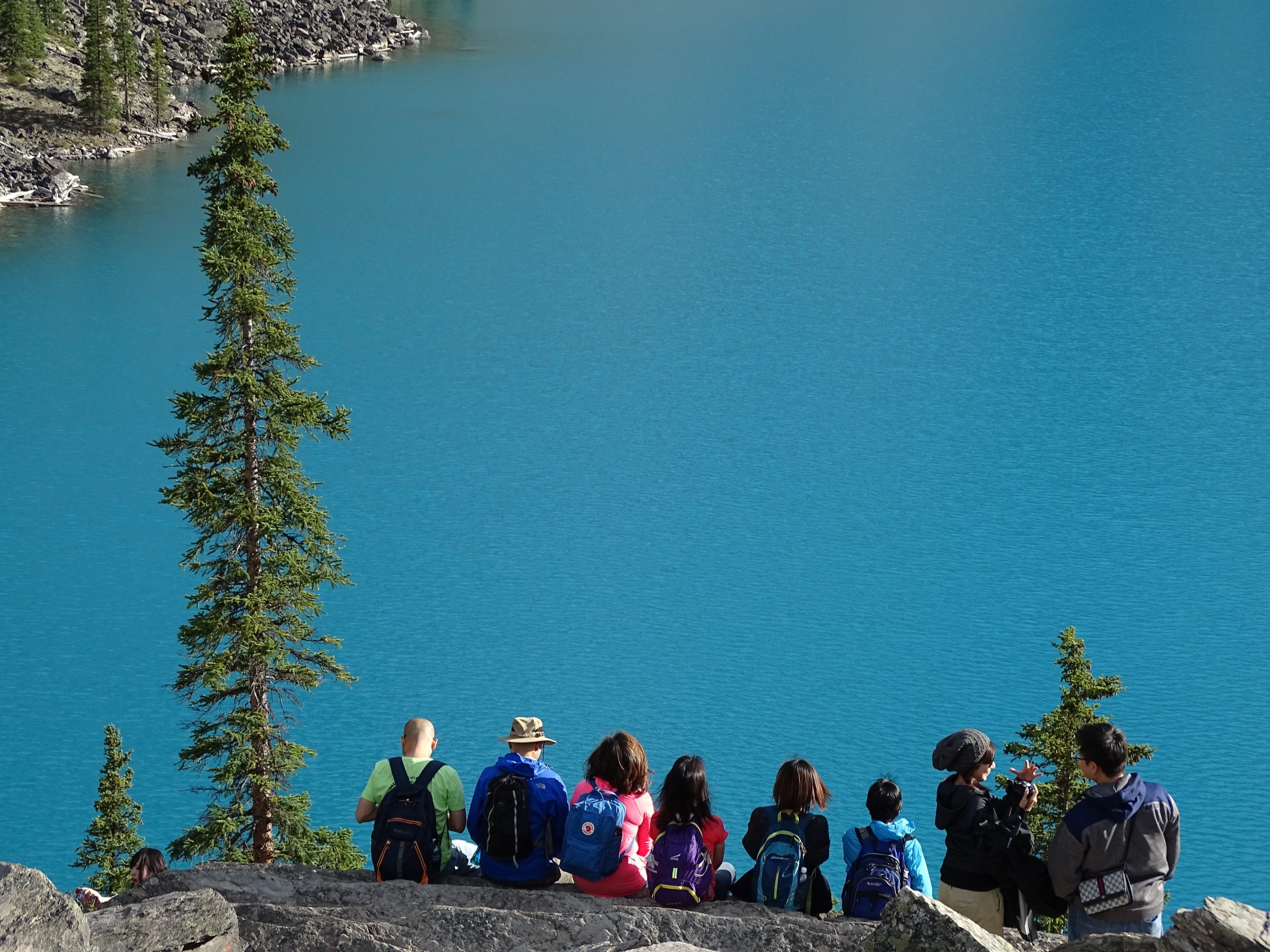Employment Challenges in the Tourism Sector: Expert Insights on Overcoming Them
The tourism sector, known for its dynamism and significant contribution to the global economy, faces a series of challenges regarding employment. From personnel shortages to high staff turnover, these obstacles can hinder industry growth and service quality. What do experts say about overcoming these challenges? Personnel shortages: a global challenge According to a recent report by the World Tourism Organization (UNWTO), the tourism industry is grappling with an alarming shortage of personnel worldwide, with an estimated gap of millions of vacant positions. This situation, exacerbated by factors such as an aging workforce and the lack of adequate training programs, poses a significant challenge for employers in the sector. Caroline Benard, an expert in hotel management, points out that the key to overcoming this shortage lies in adopting innovative approaches to hiring and talent retention. Benard emphasizes the importance of establishing partnerships with educational institutions and training programs to foster a stronger and more adaptable talent pipeline to meet the sector's changing needs. High staff turnover: impact on service quality Another challenge facing the tourism sector is high staff turnover, especially in key roles such as managers and supervisors. This turnover not only affects business operational stability but can also have a negative impact on the
Investment opportunities in sustainable tourism
Tourism represented approximately four percent of the global economy before the outbreak of the COVID-19 pandemic. During 2020-2021, the sector experienced significant losses, including a marked decline in capital investment, which included foreign direct investment. Since then, global tourism has been recovering slowly but steadily, returning to pre-pandemic levels. According to the World Tourism Organization (UNWTO), investments are crucial for the recovery and future growth of tourism, aligned with Agenda 2030 and the Sustainable Development Goals. Through its recent 2022 Tourism Investment Report, it sheds light on an uneven recovery landscape and the urgent need to redesign our investment strategies focusing on education, sustainable infrastructure, innovation, and entrepreneurship. The report highlights that while tourism has shown signs of recovery, with a 5.3% increase in tourist arrivals in 2021, foreign direct investment (FDI) has remained low. In this regard, FDI in tourism decreased in 2021 and continued its decline in the first half of this year, despite the significant increase in air traffic in Europe. This disparity indicates that, although the demand for travel has improved, investments in the sector have not followed the same pace, posing a critical challenge that demands our attention. Despite this scenario, the report points out that investment is
Sub-Tourism: An Alternative to Addressing the Challenges of Mass Tourism
Tourism is one of the world's largest industries, and its growth has been steady in recent years. According to data from the World Tourism Organization (UNWTO), in 2019, an estimated 1.465 billion international trips were made, marking a milestone in the industry's history. However, the COVID-19 pandemic in 2020 represented an unprecedented setback for the sector. With grounded airplanes, closed hotels, and travel restrictions worldwide, the number of trips plummeted dramatically to 406.98 million. Despite the challenges faced by the industry, UNWTO reported that by 2022, approximately 962.80 million trips were recorded worldwide, demonstrating astonishing growth of 136.95% compared to 2020. These figures underscore the sector's resilience and adaptability, prompting questions about how we can maintain a balance between this rapid growth and sustainability. One of the most pressing challenges of mass tourism is its impact on the environment and local communities. The overexploitation of tourist destinations can deplete natural resources and disrupt the daily lives of host populations. In response, UNWTO has acknowledged these issues and promotes sustainable tourism as a solution. This involves adopting environmentally friendly practices and fostering healthy cultural interaction. In this context, the concept of "sub-tourism" emerges as an alternative. It involves seeking more authentic and less crowded
Hospitality as an alternative investment
The hospitality industry is one of the largest and most dynamic in the world, with millions of people traveling annually in search of unique and memorable experiences. This sector not only fulfills the purpose of providing unforgettable moments for travelers but also generates millions in revenue and provides employment opportunities for numerous people. The rise of hospitality as an investment In recent years, the hotel sector has experienced steady and sustainable growth worldwide. According to a Statista report, in 2023, the global hospitality market reached nearly 4.7 trillion dollars and was projected to grow to 5.8 trillion dollars in 2027, with a compound annual growth rate (CAGR) of 5.5 percent. Undoubtedly, hospitality, with its focus on customer satisfaction and the creation of meaningful experiences for visitors, has emerged as an extremely attractive investment option. As people seek more genuine experiences during their travels, there has been a shift towards a greater demand for boutique accommodations, eco-resorts, adventure tourism, and unique gastronomic options. Now, let's explore a little about how hospitality has become a viable option for investors and how this industry offers a fresh and constantly growing perspective. Stability and resilience: while financial markets may be volatile, the hospitality industry tends to be more stable
The transformative power of Artificial Intelligence in tourism
In the digital age, Artificial Intelligence (AI) has left a significant mark on various sectors, and tourism is no exception. In particular, accommodation platforms like Airbnb have harnessed the power of AI to revolutionize the way people book and enjoy their travel experiences. But, do you know how this innovative tool is contributing to the development of tourism today? Personalized recommendations. One of the greatest benefits of AI in tourism is its ability to provide personalized recommendations, and that is that platforms such as Airbnb or Vico use AI algorithms to analyze data such as preferences, travel history, and user search patterns, capable of to offer accommodation options and tourist experiences adapted to the interests and needs of each traveler. Improvement in price management. By analyzing supply and demand in real time, AI systems adjust prices based on market availability and demand. This allows for greater flexibility and price competitiveness, ensuring that travelers get fair fares and providers maximize their revenue. Automated customer service. Through chatbots and virtual assistants, AI provides quick and accurate responses to traveler inquiries and requests, as these automated systems can provide booking information, fix common issues, and offer recommendations, thus enhancing the customer experience with efficient answers and available
Risks of investing in adults-only hotels
Adults-only hotels have become more popular in recent years, especially in beach resort destinations and places with high demand for nightlife. These hotels are usually designed to offer a unique and exclusive experience for adults, with features that include swimming pools, bars, nightclubs and a wide range of activities for this specific audience. However, as with any financial investment, there are certain risks associated with investing in these types of hotels. One of the main ones is the volatility of the tourism market, which can be especially unpredictable in times of economic crisis or natural disasters. In addition, these hotels may also be subject to changes in government regulations that could affect their ability to operate or generate revenue. Another factor to take into account is the increase in competition. As more adults-only hotels enter the market, it may become more difficult for any individual property to stand out and attract enough guests to maintain profitability. Additionally, these hotels can be very expensive to operate and maintain, which can further increase costs and reduce return on investment. Finally, there is an inherent vulnerability in any investment in the hospitality sector, as economic conditions, consumer tastes and preferences can change rapidly. Even the most






